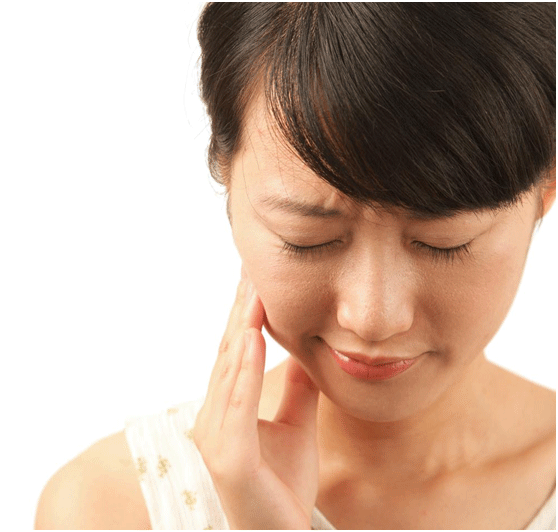What Can I Do About My Sensitive Teeth?
Dental difficulties solved
Image via Shutterstock.
Sensitive teeth are an invisible hindrance – but by making modifications to your oral hygiene, they don't need to be.
If you're suffering from sensitive teeth, it's likely that the stinging suckers are the bane of your existence. Every time you use your mouth – whether it is for brushing, flossing, eating or drinking – a sharp pain may shoot through briefly and regularly. This is typically the result of worn tooth enamel or exposed tooth roots. However, occasionally tooth discomfort is caused by other factors, which can include cavities (or caries), a cracked or chipped tooth, or a temporary side effect from a dental procedure, such as tooth bleaching.
If you've been living with sensitive teeth for a while and the pain isn't subsiding or lessening, it may be time to pay a visit to your dentist. There are many reasons one may get sensitive teeth – it all depends on the person. Your dentist may recommend any of the following:
- Flouride: your dentist may apply fluoride directly to the sensitive areas of your teeth to strengthen the tooth enamel and reduce the effects of sensitive teeth.
- Desensitising toothpaste: after several applications, this special toothpaste may help to block pain associated with sensitive teeth.
- Covering exposed root surfaces: your dentist may apply a sealant to exposed tooth roots, if receding gums are the cause of your sensitive teeth.
- Root canal: if other attempts at treatment have been tried and the effects are not lessening (or they are getting worse) your dentist may recommend a root canal treatment – a procedure used to treat problems in the tooth's soft core (dental pulp).
After treating sensitive teeth successfully, it's important to maintain a high level of oral hygiene to ensure the pain does not return. Try employing some or all of the following tips to get onto the road of good oral health:
- Brush your teeth with a soft-bristled toothbrush and fluoride toothpaste at least twice a day.
- Floss on a daily basis.
- Avoid vigorous or harsh scrubbing, highly abrasive toothpaste, and excessive brushing and flossing.
- If you grind your teeth, ask your dentist about getting a mouth guard fitted, as tooth grinding can fracture teeth and cause sensitivity.
- Limit your intake of acidic foods and drinks, which can remove tooth enamel.
- When drinking acidic liquids, use a straw to limit contact with your teeth.
- After eating acidic foods, drink a glass of water or milk to balance the pH levels in your mouth.
- Avoid brushing your teeth directly after eating or drinking acidic foods and drinks, as acid softens enamel and makes it more vulnerable to erosion.
Liked this post? You may also like this one: Teeth Whitening Toothpaste: Does it really work?


